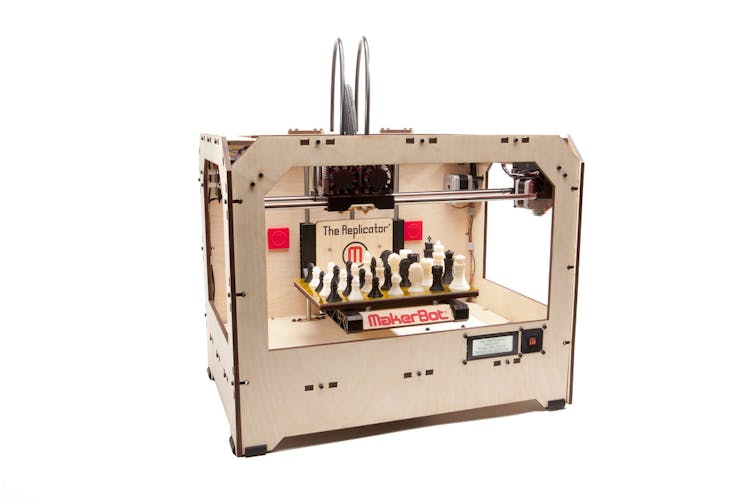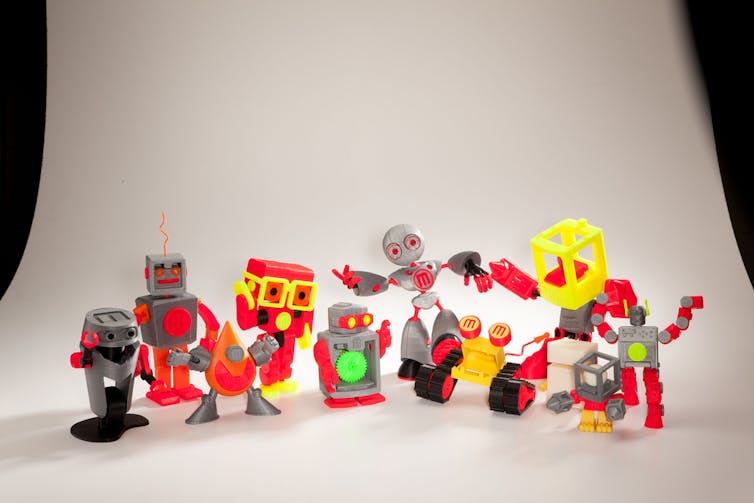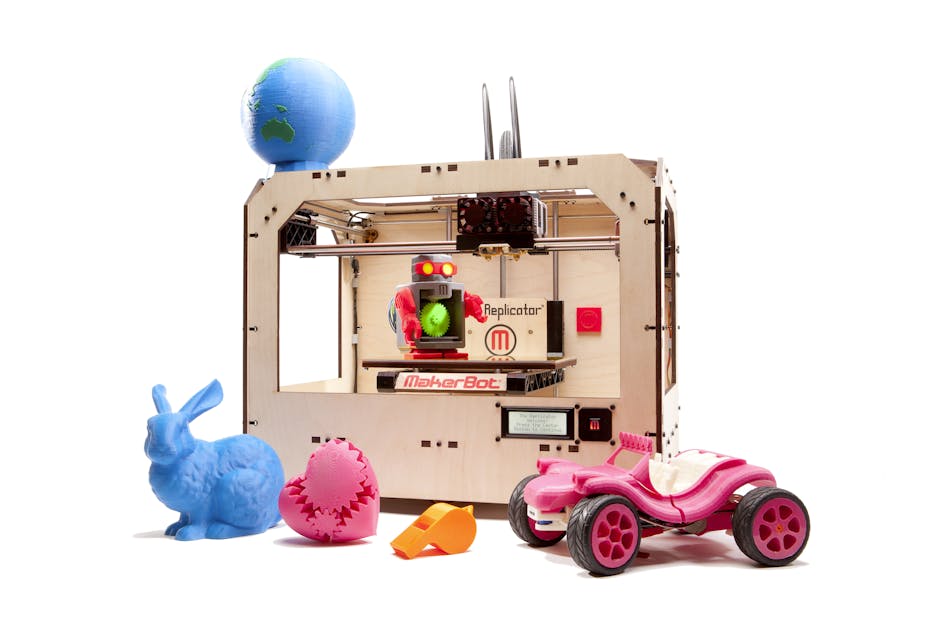The Australian Law Reform Commission is conducting an inquiry into copyright law and the digital economy in 2012 and 2013.The President, Rosalind Croucher, stated:
“While the Copyright Act has been amended on occasion over the past 12 years to account for digital developments, these changes occurred before the digital economy took off. The Australian Law Reform Commission will need to find reforms that are responsive to this new environment, and to future scenarios that are still in the realm of the imagination. It is a complex and important area of law and we are looking forward to some robust debate and discussion during the course of this very important Inquiry.”
In August 2012, the Commission published its issues paper, Copyright and the Digital Economy. The Commission has posed the question: “Should the Copyright Act 1968 (Cth) be amended to include a broad, flexible exception?”
Over the ages, copyright law has been confronted by the emergence of a range of disruptive, new technologies, such as the printing press; the pianola roll; the photocopier; the fax machine; the video cassette recorder; the personal computer; the MP3 player; and the internet. There has often been moral panics about the impact of new inventions, which can facilitate the reproduction and the dissemination of copyright works. The history of copyright law, though, has long involved a process of accommodation of new technologies.
The Australian Law Reform Commission will have to consider the role of copyright law in light of the advent of new information technologies in the digital economy. One of the most notable emerging technologies is 3D printing, which presents both opportunities and challenges for copyright law.
3D Printing
3D printing or additive manufacturing is the process of making three-dimensional physical objects from digital models. The Economist has observed: ‘Tinkerers with machines that turn binary digits into molecules are pioneering a whole new way of making things—one that could well rewrite the rules of manufacturing in much the same way as the PC trashed the traditional world of computing.’
Established in 2009, the Brooklyn company MakerBot ® is a leader in desktop 3D printing with its technology, the MakerBot Replicator TM. The company emphasises: “Personalized manufacturing using a MakerBot Replicator™ opens up a world of innovation, customization and creativity. MakerBot recommends: "Create your own 3D designs or download one of the thousands of models from Thingiverse.com, and turn your ideas into real, physical objects”. The company envisages: “With the MakerBot Replicator™, you can invent the future and also be a hero around the house”. Moreover, the company has established a website called Thingiverse, where MakerBot owners can access and contribute to a “universe of things”.
Technology writer Chris Anderson in Wired Magazine has written an appreciative piece entitled “The New MakerBot Replicator Might Just Change Your World” He writes: “Soon, probably in the next few years, the market will be ready for a mainstream 3D printer sold by the millions at Walmart and Costco” and “a3D printer will cost $99, and everyone will be able to buy one.”
Solidoodle is another leader in 3D printing. The founder of Solidoodle, Sam Cervantes, observed: “From architectural firms creating 3D models to do it yourselfers who want to easily complete projects around their homes, our new printer enables people to create like they never have before.”
There is also RepRap, an open source community initiative designed to develop a 3D printing, which can replicate its own components.
Copyright Law

Copyright owners have been anxious and fearful about 3D printing, because they fear that it will enable the unauthorised reproduction and dissemination of copyright works. There have been already skirmishes over copyright law and the MakerBot. The Games Workshop sent a takedown copyright notice to Thomas Valenty because he used a MakerBot to design figurines – a war mecha and a tank for use in the game Warhammer 40,000.
Cory Doctorow has warned against moral panics being invoked in respect of 3D printing - focusing on such apocalyptic threats as piracy, organised crime, and terrorism.
The civil society group Public Knowledge, though, have become concerned that the technology of 3D printing will be the subject of lawsuits by intellectual property owners. The NGO recognises: “Because it allows people to create, copy, and modify objects, it will also have a large impact on our existing intellectual property laws.” The group has sought to discourage the United States Congress from passing laws that would restrict or curtail 3D printing.
Michael Weinberg of Public Knowledge commented: “Policymakers and judges will be asked to weigh concrete losses today against future benefits that will be hard to quantify and imagine.” He observed that “the community must work to educate policy makers and the public about the benefits of widespread access”.
Julie Samuels of the Electronic Frontier Foundation comments: “Open hardware printers have been used for rapid prototyping of new inventions, to print replacement parts for household objects and appliances, by DIY scientists to turn a power drill into a centrifuge, for a game in which you can engineer your own pieces, and for thousands of other purposes by makers of all stripes.” She has argued that there is a need to ensure that 3D printing is not stifled by intellectual property litigation.

There is a need to provide proper recognition of consumer rights under copyright law, so that they have the freedom to tinker and engage in remix culture and DIY design. Early adopter (and 14-year-old-student) Murray Rosenbaum observed: “The MakerBot opens up a world of opportunity for children, adults, creators, thinkers, and overall anybody who is interested in creating something that want to see physically.” In this context, there is a need to ensure that consumers experimenting with 3D printing are able to make fair uses of copyright work.
Spencer Thomson commented: “3D printing exists and, without an appropriate policy framework, we run the risks of repeating mistakes in dealing with online copyright and file-sharing that are only just now being addressed a decade on.”
Copyright Law Reform
The great hope is that the Australian Law Reform Commission will transcend the usual partisan politics of the “Copyright Wars”, and provide an independent, coherent blueprint for copyright law reform in Australia.
In Australia, the developers of 3D printing face certain risks and uncertainties in respect to litigation under Australian copyright law. Australia does not have a broad, open-ended, flexible defence of fair use, like the United States. Instead, Australia has the much more narrow defence of fair dealing. The permitted purposes for fair dealing include research and study; criticism and review; reporting the news; and parody and satire. The developers of 3D printing would struggle to obtain protection under the defence of fair dealing - outside educational applications within Australian universities.
As such, the developers behind 3D printing would be loath to establish their operations in Australia. They would be vulnerable to copyright law suits. Such entrepreneurs would be better off sheltering under the protection afforded by the defence of fair use in the United States. No wonder MakerBot and Solidoodle are based in Brooklyn, not Sydney.
Given our comparative disadvantage in the digital economy, with our strict and draconian copyright laws, Australia would be well-advised to revise its copyright laws and adopt a defence of fair use, which is flexible enough to accommodate the emergence of 3D printing.

